Qigang Wang
Disentangled Neural Architecture Search
Sep 24, 2020



Abstract:Neural architecture search has shown its great potential in various areas recently. However, existing methods rely heavily on a black-box controller to search architectures, which suffers from the serious problem of lacking interpretability. In this paper, we propose disentangled neural architecture search (DNAS) which disentangles the hidden representation of the controller into semantically meaningful concepts, making the neural architecture search process interpretable. Based on systematical study, we discover the correlation between network architecture and its performance, and propose a dense-sampling strategy to conduct a targeted search in promising regions that may generate well-performing architectures. We show that: 1) DNAS successfully disentangles the architecture representations, including operation selection, skip connections, and number of layers. 2) Benefiting from interpretability, DNAS can find excellent architectures under different FLOPS restrictions flexibly. 3) Dense-sampling leads to neural architecture search with higher efficiency and better performance. On the NASBench-101 dataset, DNAS achieves state-of-the-art performance of 94.21% using less than 1/13 computational cost of baseline methods. On ImageNet dataset, DNAS discovers the competitive architectures that achieves 22.7% test error. our method provides a new perspective of understanding neural architecture search.
Challenge Closed-book Science Exam: A Meta-learning Based Question Answering System
Apr 26, 2020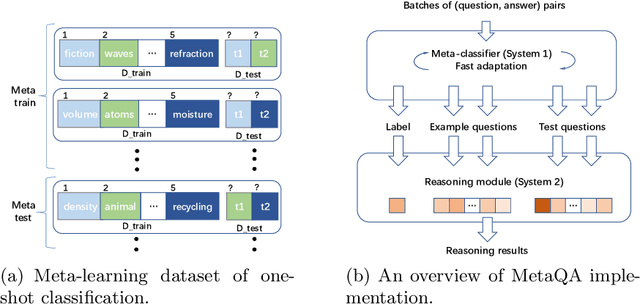

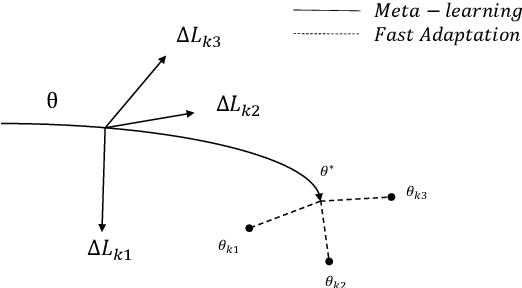

Abstract:Prior work in standardized science exams requires support from large text corpus, such as targeted science corpus fromWikipedia or SimpleWikipedia. However, retrieving knowledge from the large corpus is time-consuming and questions embedded in complex semantic representation may interfere with retrieval. Inspired by the dual process theory in cognitive science, we propose a MetaQA framework, where system 1 is an intuitive meta-classifier and system 2 is a reasoning module. Specifically, our method based on meta-learning method and large language model BERT, which can efficiently solve science problems by learning from related example questions without relying on external knowledge bases. We evaluate our method on AI2 Reasoning Challenge (ARC), and the experimental results show that meta-classifier yields considerable classification performance on emerging question types. The information provided by meta-classifier significantly improves the accuracy of reasoning module from 46.6% to 64.2%, which has a competitive advantage over retrieval-based QA methods.
Efficient Automatic Meta Optimization Search for Few-Shot Learning
Sep 06, 2019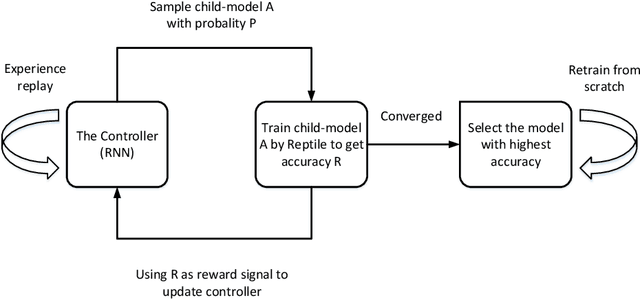
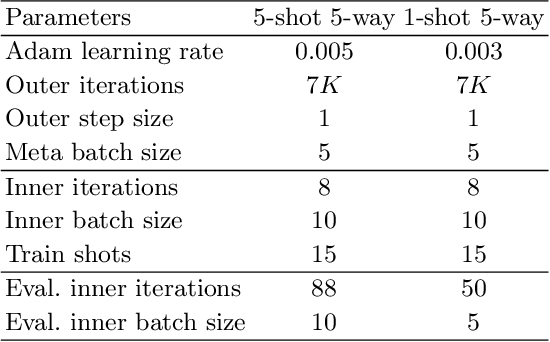
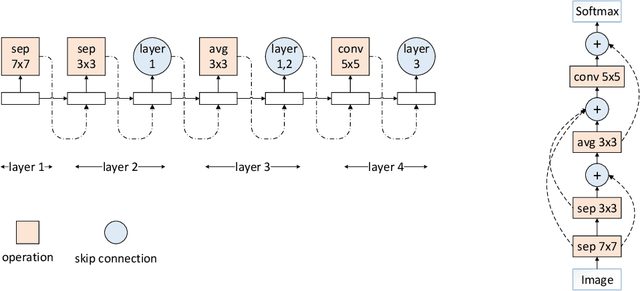
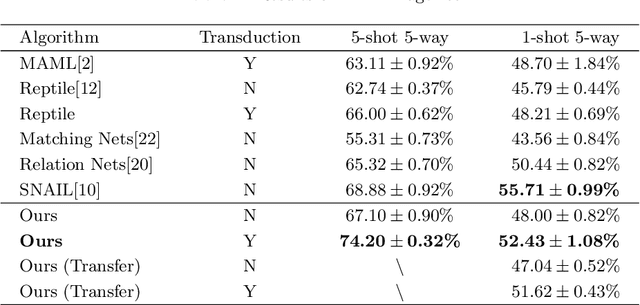
Abstract:Previous works on meta-learning either relied on elaborately hand-designed network structures or adopted specialized learning rules to a particular domain. We propose a universal framework to optimize the meta-learning process automatically by adopting neural architecture search technique (NAS). NAS automatically generates and evaluates meta-learner's architecture for few-shot learning problems, while the meta-learner uses meta-learning algorithm to optimize its parameters based on the distribution of learning tasks. Parameter sharing and experience replay are adopted to accelerate the architectures searching process, so it takes only 1-2 GPU days to find good architectures. Extensive experiments on Mini-ImageNet and Omniglot show that our algorithm excels in few-shot learning tasks. The best architecture found on Mini-ImageNet achieves competitive results when transferred to Omniglot, which shows the high transferability of architectures among different computer vision problems.
 Add to Chrome
Add to Chrome Add to Firefox
Add to Firefox Add to Edge
Add to Edge